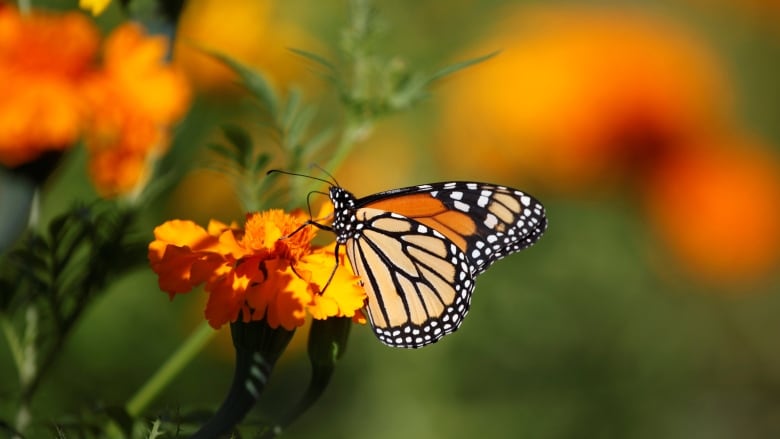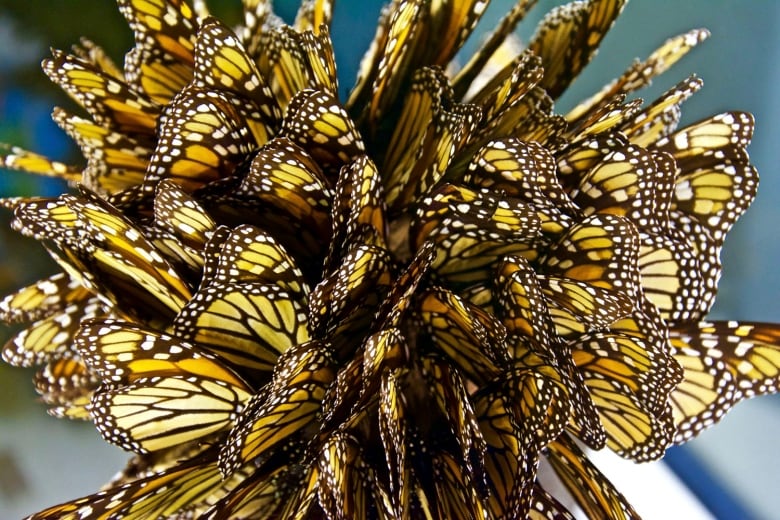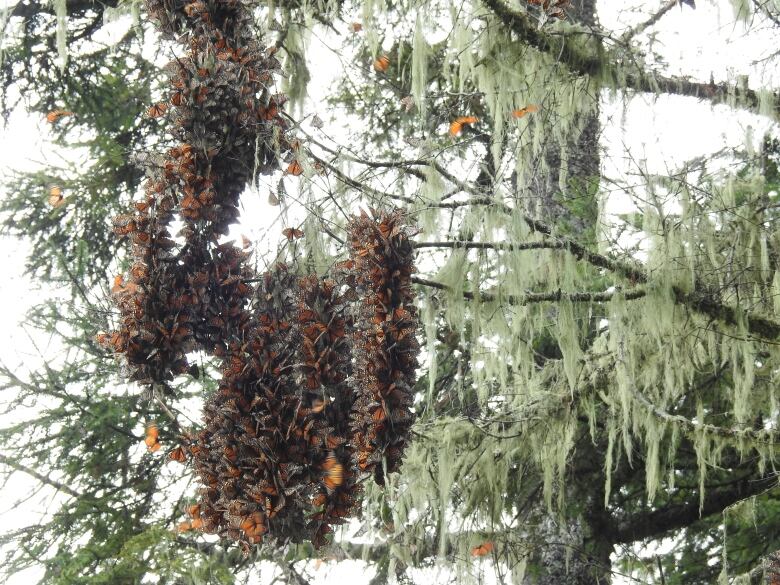Fewer monarch butterflies made it to Mexico again this year
Busy hurricane season on migration route could have been a factor

The number of monarch butterflies wintering in Mexican forests declined for a second consecutive year, a government official said Monday.
Alejandro Del Mazo, Mexico's commissioner for protected areas, said the monarchs clumped in trees covering about 2.48 hectares (6.12 acres) this winter. That was down about 14.7 per cent from the 2.91 hectares (7.19 acres) the previous winter.
The monarch butterflies' migration is measured by the area they cover in pine and fir forests west of Mexico City. Millions of the butterflies make the 5,500-kilometre (3,400-mile)migration from the United States and Canada each year.
Jorge Rickards, director of the World Wildlife Fund in Mexico, which participated in the annual study, said a particularly busy hurricane season across the insects' migration route could have been a factor.
"These climate phenomena without a doubt have an impact on the migration," Rickards said.
He also mentioned a March 2016 wind storm and cold snap that devastated the core of the butterfly reserve.

Monarch expert Lincoln Brower, a biology professor at Sweet Briar College in Virginia who co-authored a report about the 2016 storm, pointed to the effects of that storm's felling of thousands of trees. The salvage logging permitted by the government to remove the downed trees to reduce the risk of forest fires continued to damage the fragile ecosystem, he said.
In a September 2017 article in American Entomologist, Brower wrote that "forest thinning reduces the microclimatic buffering provided by the forest canopy during the winter season, thus increasing the mortality risk to the overwintering monarchs."
The monarch butterflies wintering in Mexico have been in decline since the winter of 1996-1997 when they covered about18 hectares (44 acres)of forest. There have been several rebound years, but each has generally been less than the preceding upswing.
Increased use of herbicides in the United States have hurt the prevalence of milkweed, which monarch caterpillars feed on, risking their survival.
Insufficient data
Homero Aridjis, an environmental activist who has worked to protect the butterflies' winter habitat, said the government has supplied insufficient data to allow independent scientists to analyze the colonies. He said new ways to measure the butterfly population are necessary.
Del Mazo said Monday tthat he government is awaiting data from a laser-scanning technology known as LIDAR.

On the positive side, Rickards noted that illegal logging in the Mexico reserve was nearly eliminated last year with the help of gendarmes who patrol the area. He said 0.65 hectared (1.6 acres) was lost to illegal logging last year, compared to 12 hectares (29.6 acres) the prior year.
"On one hand, Mexico has done its work as far as controlling logging, but on the other hand Mexico is not free of the global phenomena implied by climate change and we have to be ready to confront and take measures to be able to adapt to this reality," Rickards said.












_(720p).jpg)


 OFFICIAL HD MUSIC VIDEO.jpg)
.jpg)



























































































